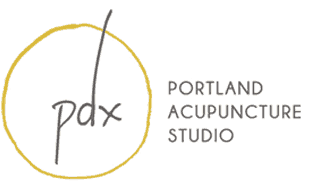
During the Coronavirus pandemic, I don’t expect you to be calm. I won’t even pretend that’s possible much of the time. Many things are so different and scary now. And, frankly, a lot about this is really inconvenient and frustrating.
To help us cope, we’ve been hearing a lot of about mindfulness. We’re encouraged to take deep breaths, get centered, and try to stay calm when the sky is actually falling. It’s a lot of pressure, and, for many people, it’s not realistic. Mindfulness is actually not about calming down. It is simply practicing being present and attentive to what is, and being ok with it.
I’ll be honest, my long-time mindfulness practice has felt like a mess lately. I can’t concentrate, I stop and start, I check my phone, I think *the entire* time, I can’t get a deep breath, and I frequently wonder what the point is.
Here are a few things to know about mindfulness practice during a crisis:
- It will be hard to take time to do it. You won’t want to. You’ll get pre-occupied with other things, and it won’t feel like a priority.
- When you do finally do try, it may not feel great. Like me, you will probably be distracted and restless. It will be hard to turn your mind off. Hard to feel calm about anything.
- You may get up after some sessions feeling no better than when you sat down.
- You may wonder why you paid for that darn mindfulness app subscription.
- You’ll want to quit.
- None of this is a problem. It is all part of it. Stick with it anyway.
Why? Because your mind won’t be completely calm, certainly not at times like these. But, like practicing any skill, consistency is the magic that makes the difference. Focus, intention, and novelty all matter to the brain. Consistent mindfulness practice trains your brain out of its ruts. Over time, you improve your ability to remain strong in the presence of difficulty. You just may not be able to tell immediately, because your brain is so complex.
I could quote lots of research about the health benefits of consistent mindfulness practice. Regular practice definitively improves many aspects of our health and makes us more resilient. I could explain how practicing mindfulness helps build new pathways in your brain, allowing for new habits, less emotional reactivity, and even more happiness. It’s all true. Somehow, though, most people don’t meditate because of the science. We do it out of desperation.
Don’t fight that fact, use it. Try mindfulness now because times are so hard. Because your body needs a break. Because your mind is overloaded with too much to process. It is very helpful to give your mind a different experience. Even a few moments of unplugging lets your brain know it can shift from a state of reacting to one of witnessing. Don’t try for calm. Don’t try to stop being anxious. Just be with yourself quietly, as you are, even when your mind is screaming. Become your own best friend.
Hopefully, you will feel calmer after a mindfulness session. You are likely not going to stop reacting to every piece of bad news, however. You are going to be very human about this. And that is perfect. Over time, you will notice you have changed for the better. You will come out of this crisis feeling more resilient, ready to embrace the future, rather than feeling traumatized and exhausted.
While you’re considering that, here’s a list of some of the best Mindfulness Apps out there. Since times are so tough, having experts help guide us is preferable to sitting in angst-filled silence. Help yourself out and experiment with these:
1. Headspace
The one that started the Mindfulness App movement. The narrator’s British voice is so soothing – he was made to lead mediations! This app includes many different session options all with the same narrator. There are courses on different topics like Relationships, Stress, Anger, Appreciation, Sleep, and many more. It’s as good as it sounds, especially if you are starting out or starting over.
2. 10% Happier
In 2014, ABC News reporter Dan Harris had a panic attack on live TV. This experience led him to seek out options to reduce his anxiety. As a journalist, he interviewed top meditation leaders from around the world, seeking their guidance. His life changed, and, with their help, he made this app to help others. This app is excellent if you want professional, woo-free, science-based mindfulness training. There are many gifted world-class teachers here. It is very a satisfying experience that makes it quite possible to become at least 10% happier.
3. Stop, Breathe, & Think
A lovely app that has you choose your mood first, and then gives you practice options based on where you are right now. I find that they are spot on and very helpful. You can choose a female or male narrator. You can do a lot for free in this app.
4. Insight Timer
Meditation teachers from around the world contribute to this app’s very diverse offerings. Through their network, you can connect in-app with others who are practicing. They also offer a meditation timer with several gentle chime options for your own silent practice. And this one’s (mostly) free!
5. Calm
This app asks you to name your most important reasons for practicing and delivers customized topics and options. A lovely, gentle-voiced woman guides many of the meditations, along with some famous people like Matthew McConaughey. There are also bedtime stories as well as relaxing sounds/music without narration. This app is especially known for support with sleep.
6. Simple Habit
Another app that uses many teachers from throughout the community, and provides a wide variety of different topics and session lengths to fit into your busy day.
One last thought: Mindfulness is very practical. It does not involve esoteric meditation practices. Mindfulness is simply healthcare. You don’t have to believe any kind of spiritual ideas to meditate. We practice mindfulness to become more focused, healthier, and, at times, calmer. Keep at it. I’m out here trying with you, and I am convinced it matters more than we even know.
Let us know about your mindfulness practice in the comments below.
Stay well,
Lisa Tongel, LAc
Established patients can schedule online, patients who haven’t seen us at Kwan Yin Healing Center call (503) 701-8766, or email us to schedule your appointment.




